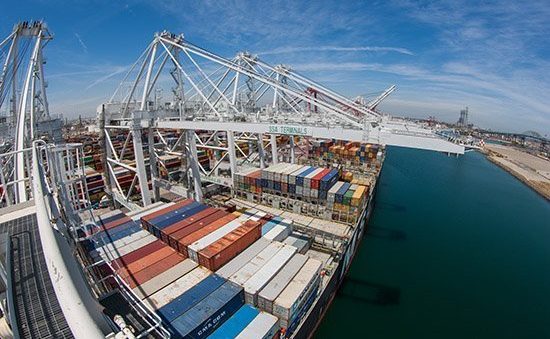IoT, robotics and machine learning transforming supply chains

Transport and logistics businesses are investing in Internet of Things (IoT)-based smart technologies to help them take advantage of the wealth of opportunities that the Fourth Industrial Revolution offers. This is according to research data collected by Inmarsat, the mobile satellite communications provider, which reveals that the sector is prioritising IoT, machine learning and robotics to increase efficiencies across the supply chain.
Inmarsat’s The Future of IoT in Enterprise report, featuring responses from 100 large global transportation companies, found that respondents see IoT as the top priority in their approach to digital transformation, with 36% having already deployed IoT-based solutions, and a further 45% expecting to roll the technology out by 2019.
The research further revealed that transport companies are rapidly exploring a wide range of other next generation technologies in the pursuit of digital transformation. The most popular are machine learning (37%), robotics (37%) and 3D printing (29%).
Commenting on the findings, Mike Holdsworth, director of transport at Inmarsat Enterprise, said: “The industry is clearly making significant strides towards digital transformation, with IoT-based solutions, used in conjunction with robotics, automation and machine learning, helping to transform the way that goods are manufactured, stored and delivered. Companies that proactively invest in these technologies will be able to facilitate more secure and profitable operations across their supply chain.
“Connected machines that can quickly locate and retrieve stock, self-navigate through any environment and make automatic route corrections based on real-time information updates will prove invaluable for any logistics organisation,” he continued. “Smart robots and unmanned aerial drones that work without rest breaks, carry heavier loads and quickly bypass areas of heavy traffic or congestion will be hugely important. They will enhance supply chain management, while their ability of to self-diagnose faults and schedule predictive repairs will be vital for minimising down-time and reducing maintenance costs.”
